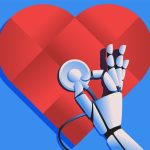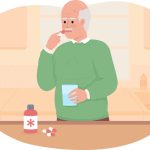How deep breathing exercise can help you control blood pressure
In today's fast-paced world, stress is a common ailment that affects many of us. Stress can lead to high blood pressure, which in turn...
Loss of sense of smell linked to heart disease, study finds
As we grow older, many of us may start noticing that our sense of smell isn't what it used to be. This change, while...
Key warning signs of heart disease in older people
Heart disease remains one of the leading causes of death worldwide, and its warning signs can often be subtle, especially in older adults. Recognizing...
How to manage Alzheimer’s and Parkinson’s with medications
Managing medication for Alzheimer’s and Parkinson’s diseases presents unique challenges. These neurodegenerative disorders not only impact a person's cognitive and physical abilities but also...
Common foods that help lower blood pressure
High blood pressure is a common health issue that affects many people worldwide. Managing blood pressure is crucial because it can lead to serious...
Common causes of diabetic eye disease
Diabetes is a well-known health condition that affects millions worldwide, but its impact goes beyond blood sugar levels and insulin management. One of the...
The benefits of continuous glucose monitoring in diabetes management
Diabetes management is a critical aspect of maintaining health and preventing complications associated with the disease.
Among the many tools available for managing diabetes, Continuous...
Why physical therapy is important for Parkinson’s disease treatment
Parkinson's disease is a progressive neurological disorder that primarily affects movement. It can cause tremors, stiffness, and difficulty with balance and coordination.
While there is...
How work stress can harm your heart health
Achieving a healthy work-life balance is becoming increasingly challenging for many people around the world.
With the demands of long working hours, constant availability, and...
Study finds Xylitol linked to higher risk of heart attack and stroke
Researchers at the Cleveland Clinic have discovered that high levels of xylitol, a common sugar substitute, are linked to an increased risk of heart...










